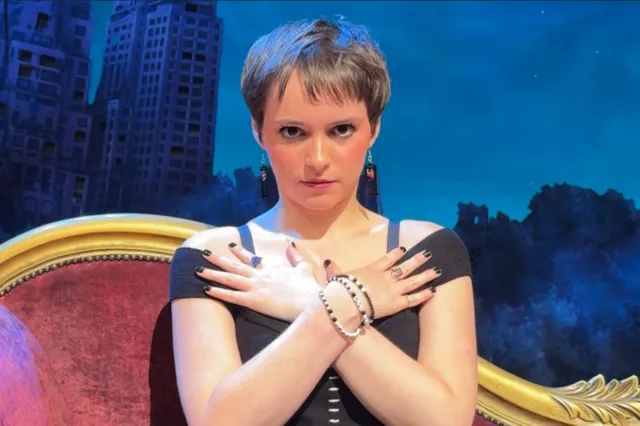Lie of the Land
Plays in verse have drifted in and out of fashion over the past 50 years, but we seem to be a witnessing a slow resurgence. Personally, I welcome any attempt to move the drama away from the cinematic and televisual; so often these days one leaves a new play feeling that it would have been more suited to the screen.
Outside their storm-racked hermitage, the rest of the world appears to be flooding, and the final powerful symbolic image of the play is quasi-biblical, with the couple seeking rescue and waving at the rest of humanity adrift on makeshift arks.
The couple are played by Emily Bowker and Chris Harper, who are immensely watchable; they bring tremendous energy and conviction to the piece. The secret of verse-reading/acting is to use the discipline the structure brings as a springboard to release the emotions within. However, on occasion, the actors have a tendency to play a generalised ‘character’ rather than live each tiny moment, therefore the couple’s emotional journeys are not clearly defined enough, and I feel there are depths of feeling in the writing that are as yet untapped.
Having said that, director Adam Barnard structures this hour-long, impressionistic piece well, and he has brought together a talented creative team. The simple but effective setting is credited to the company and Kelly Vassie, but the disturbing atmosphere of the piece owes most of its success to the soundscape by Steve Mayo and lighting by Mikey Robertson.
Barnard also employs projected scene titles (designed by Oscar Sharp), presumably to keep us on the narrative track and achieve a Brechtian objectivity. But the irony is, I wanted to be more subjectively involved with the nameless characters, not distanced from their emotional odyssey.
– Keith Myers












